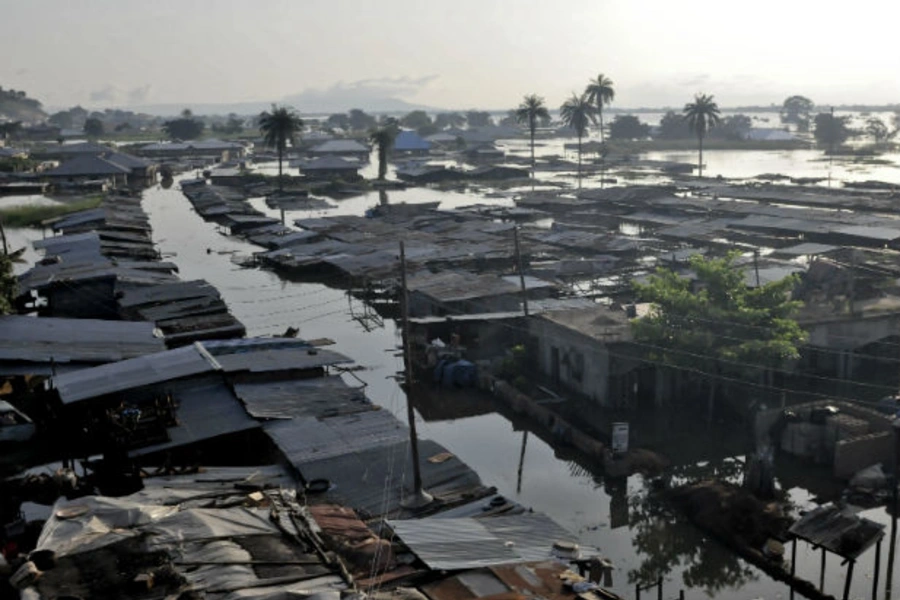More on:
Floods resulting from the autumn rainy season have devastated central and southeastern Nigeria. According to Nigerian media, the flooding is the worst in fifty years, and has already killed more than one hundred and displaced more than a million people. The Nigerian media speculates that the particularly heavy rains are associated with global warming–as is the shortage of rainfall, when it occurs, and the advance of the Sahara Desert in the north.
In the areas affected by flooding, the displaced are huddled together in camps set up by the state governments. Presumably, outbreaks of infectious disease will start soon if these conditions do not improve. Despite the efforts of Nigeria’s National Emergency Management Agency, the Red Cross and some private organizations, nationally organized relief appears minimal. According to a locally-based NGO in Delta state, in a camp for one thousand five hundred victims, the state authorities have been able to supply only one hundred mattresses, fifty blankets, twenty bags of rice, and a few bags of gari.
President Goodluck Jonathan has declared the flooding a "national disaster" and established a National Committee on Flood Relief and Rehabilitation. On October 9, his administration announced it was providing U.S. $110 million in financial assistance.
But, in the southern part of the country, there are complaints that the federal government is doing nothing and that the federal relief funds have disappeared. The military, stretched thin by Boko Haram in the north and a resurgence of the kidnapping of expatriates in the Niger Delta oil patch, appears altogether absent.
Anger is building at what many see as government ineptness. Yet, the states most affected by the flooding in the south include Jonathan’s core constituency. In the 2011 presidential elections, he won 99 percent of the vote in Delta and Bayelsa states. Jonathan is a native of Bayelsa. His home village is among those that have been evacuated.
Knowledgeable Nigerians are telling me that the human tragedy is of far greater magnitude than that resulting from Hurricane Katrina. At the time of Katrina, the Nigerian government donated U.S. $1 million for disaster relief in the American gulf states. This was an important gesture by a developing country. If the Obama administration has not already done so, it should be looking at what the United States can offer to do to mitigate the consequences of Nigeria’s current natural disaster.
More on:
 Online Store
Online Store
